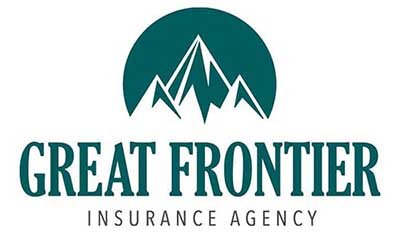Common Pet Insurance Questions
Looking for answers about pet insurance in Colorado? Learn about coverage, costs, vet acceptance, and more. Make informed decisions for your beloved companion's health. Get expert insights from a Colorado insurance broker with over 25 years of experience.
-
Whether pet insurance is worth it depends on various factors, including your pet's breed, age, health, and your financial situation. Pet insurance can be worth it for some pet owners, especially those with dogs or cats prone to medical issues. It provides financial protection against expensive vet bills. But it may not be cost-effective for healthy pets.
-
The average cost of pet insurance for dogs ranges from $30 to $100 per month. For cats it's $10 to $40 per month. Premiums vary based on factors like your pet's breed, age, location, and coverage details.
-
Pet insurance coverage can vary among plans. It generally covers unexpected veterinary expenses due to accidents, injuries, and illnesses. Some plans also offer coverage for routine care, dental treatments, prescription medications, and more. But pre-existing conditions are often excluded.
-
You pay a monthly premium. When your pet needs care, you pay the vet bill upfront. Then you submit a claim to get reimbursed by your insurer for covered costs, minus any co-pay or deductible.
-
Yes, with pet insurance, you can typically use any licensed veterinarian. In fact, pet insurance doesn't need to be "accepted" by your vet — it has no networks or copays. Instead, it's designed to reimburse you for covered costs as long as you use a licensed vet. As an independent insurance broker, we can help you find a plan that fits your needs.
-
It's best to get pet insurance while your pet is still young and healthy. Pre-existing conditions are typically not covered, so early enrollment ensures maximum coverage.
-
It's possible that premiums may increase with your pet's age, just like with human insurance. However, some providers offer fixed-rate plans to provide stable premiums.
-
As an insurance broker, we can compare pet insurance from various providers for you. Contact us now to start your free quote.
-
Routine preventive care like spay/neuter is generally not covered by pet insurance. It mainly covers accidents, injuries, and illnesses. Some plans cover wellness add-ons for extra cost.
-
For accident and illness coverage, expect to pay $30-$100 per month for dogs, depending on factors like breed, age, and location. Add $15-$25 for wellness coverage.
-
Some pet insurance plans offer coverage for dental treatments, while others might have dental coverage as an optional add-on. Routine dental care might not always be covered. If you still have pet insurance questions, contact us today, we can help you navigate the different options.
-
Some pet insurers do offer specialized coverage for service dogs and police dogs. They may cover training costs and provide higher annual limits.
-
Most plans do not cover prescription pet food. But some may include it under wellness coverage add-ons that reimburse for routine vet services. Additionally, some plans might cover prescription pet food if it's recommended by a veterinarian as part of a treatment plan. Check the policy details to see if it's covered. Still unsure? We can answer all your pet insurance questions.
-
Most pet insurance plans include end of life expenses, such as the cost of euthanasia, but there may be certain conditions. Most pet insurance providers cover euthanasia for humane reasons. However, accident-only pet insurance plans might cover euthanasia only if it's deemed necessary as the result of a covered accident. Still have pet insurance questions? Give us a call.
-
Yes, ACL surgery, one of the most expensive pet injuries, is typically covered by accident and illness pet insurance plans, minus any applicable deductible or co-pay. However, there might be waiting periods and pre-existing condition clauses to consider.
-
Pet insurance can still be valuable for indoor cats. Accidents like falls or getting into harmful items can happen indoors. And illnesses like cancer, urinary tract infections, etc. can affect any cat.
-
Yes, pet insurance generally covers hip dysplasia treatments like medications, surgery and rehab. But normal coverage exclusions for pre-existing conditions apply.
-
Cataract surgery is typically covered by pet insurance accident and illness plans, as it's medically necessary. But like other pre-existing conditions, progressive cataracts diagnosed before enrollment would be excluded.
-
It depends on the insurance provider. Some companies may have breed-specific restrictions, while others offer coverage regardless of the breed.
Disclaimer: The information provided above is for general informational purposes only and may not reflect the specific terms and conditions of your insurance policy. Insurance policies can vary, and it is important to review your policy and consult with your insurance provider to understand the exact coverage and limitations regarding business use of your vehicle.
Need more help? Contact us and we can help you review your current policy.
